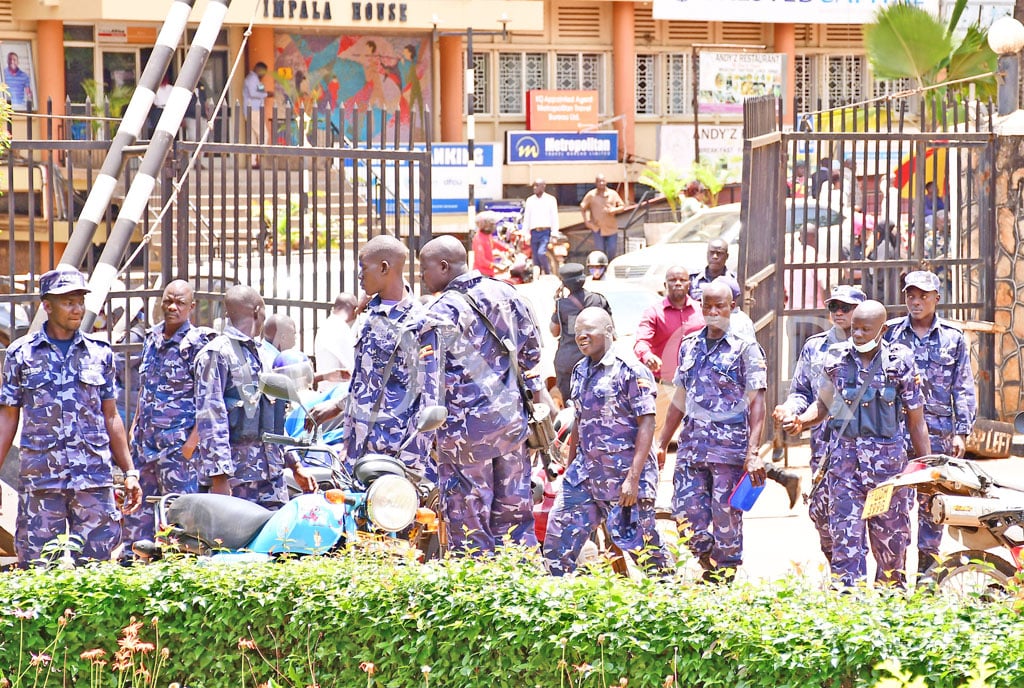New study provides solutions to boda boda transport challenges in Kampala

Boda bodas carry passengers on 8th Street Industrial Area in Kampala recently. PHOTO | FILE
A new study done to provide solutions to the current transport problems emanating mainly from the motorcycle taxis, colloquially known as boda bodas, has recommended short, medium and long term solutions that Kampala Capital City Authority (KCCA) and the government should undertake to decongest and create sanity the city.
Friedrich-Ebert-Stiftung (FES) that undertook the study argues that the Greater Kampala Metropolitan Area (GKMA) has seen a rapid increase in the operations of the boda bodas which bridge the plethora of mobility gaps that exist in environments like Kampala and which disproportionately affect the urban poor.
It further states that the industry is also a significant economic force, considered to be the second largest employer of young people, not only in Kampala but across Uganda. And while boda bodas are indispensable due to their abilities of navigating traffic jams and accessing remote locations to deliver passengers and goods to their destinations in time and affordable, the industry remains largely unregulated and is associated with insecurity and safety issues for both the riders and passengers.
FES Uganda Office commissioned the study to understand not just the role the boda boda industry plays in the transport economy but also the processes of informal organisation, the challenges and the potential they provide for safe and inclusive cities as pathways to integrated mobility planning and inclusive transport policy.
The theme of the study was “Between Regulation and Informality the Inner workings of Boda boda associations in Greater Kampala”
Presenting the study findings, Dr Paul Isolo Mukwaya, senior lecturer department of geography Geo-informatic and Climatic Sciences Makerere University said the study report is the culmination of research that was undertaken to support a comprehensive and integrated urban transport consultative process and to strengthen overall transport policy/decision making in the GKMA. With a more targeted focus on the boda boda industry.
Dr Mukwaya said the boda boda industry is largely self-regulating through two distinct modes; formally organised and registered groups.
“Our finding showed that there exist about 84 boda boda associations formally registered by KCCA, mostly operating in the Greater Kampala Metropolitan Region. Informally organised committees, typically associated with a boda boda stage, which have been allowed to operate because of the exigencies of the boda boda industry,” he said.
The study report has three different sets of recommendations, which ranges from short, medium and long term.
Under the short term recommendation, Dr Mukwaya said: “Regulation from (in) formality Based on its economic importance, it is recommended that the regularisation of the boda boda industry is urgent. A lot should be done regarding registration and licensing, training, and enforcement of traffic rules.”
Dr Mukwaya said the current state of (in) formality in which the boda boda associations operators should be handled appropriately by the relevant authorities including but not limited to the Inter-Ministerial and Agency Committee involving Kampala Capital City Authority and surrounding municipalities, Uganda Police and other security forces, the Ministries of Works and Transport, Security, Gender, Labor and Social Development, Internal Affairs, amongst others.
In the medium term recommendations: the government should implement a tracking system for boda bodas to rein in unlawful behaviour. Digitalisation and ICT usage for boda boda operations.
While launching the report, the lord mayor of Kampala, Erias Lukwago said the predominant mode of transport in Kampala is boda boda and they have come up with a multi model of transport plan in the city to bring them into formal association/organization.
However, on the other hand, he said: “Uganda needs a national legislation for the transport sector to bring orderliness. It is not right for each city or town to have their legislations.”




